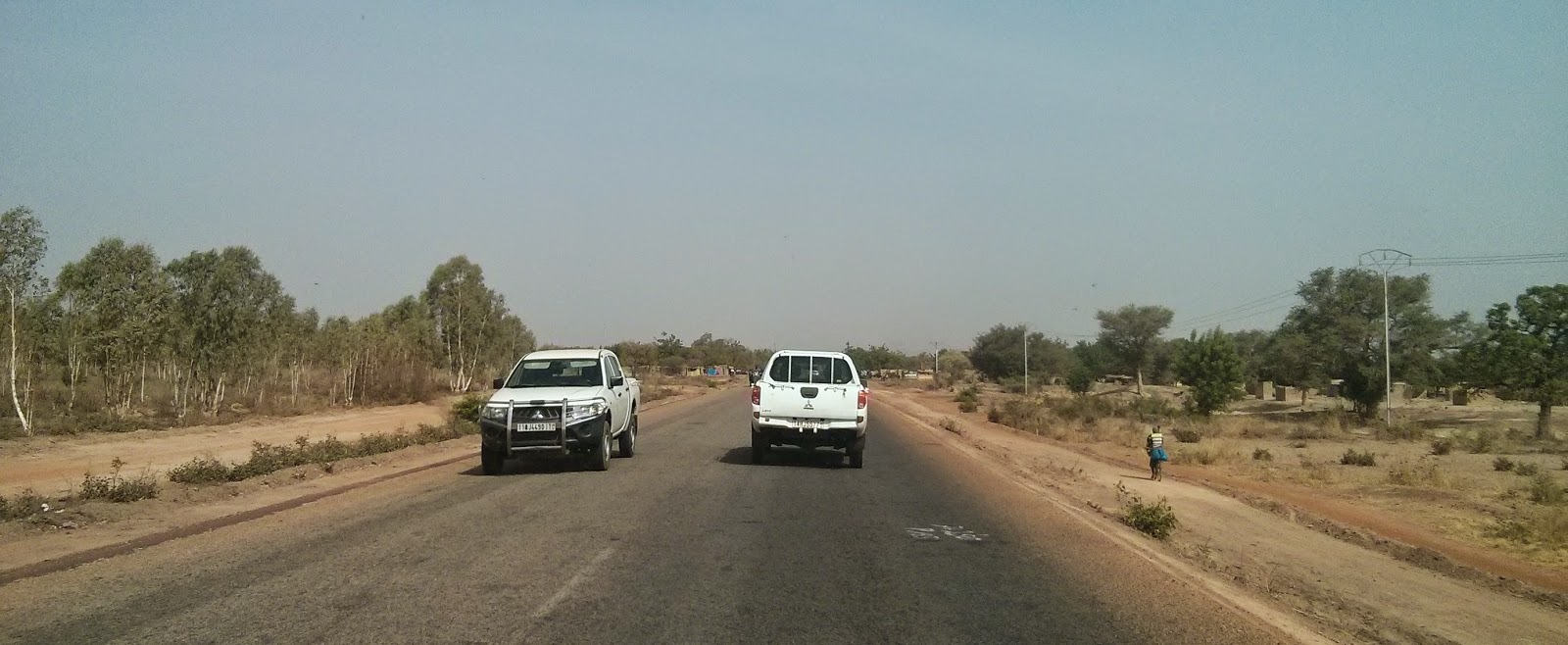Burkina Faso is one of my favorite countries in the world!
And the reason I love this country is its people. The Burkinabe work hard and make due with the limited resources that they have.
When the dry season comes around in this West African land-locked Sahelian country, it gets hot, the sort of hot that there is no escape unless you sit next to the air conditioning all day and all night. Most people there don't have air conditioning. Water is scarce, heat is plenty and everything is dry! And yet people survive and thrive.
Early one morning on our way to the northern part of Burkina Faso, we passed by the lake located in the capitol city, Ouagadougou. I could see young and old, men and women farming in small plots, planting away. Though early, the intense heat and the burning sun had already overtaken the land.
As we got away from Ouagadougou, and continued our journey north, I saw more and more of the dried-up farms waiting for the rainy season to come for revival of the land and the growth of their crops. Not much irrigation is available as most farmers depend on rain-fed agriculture.
I also noticed, that most of the plots had regular size stones lined up next to each other like a very long snake going around it. I asked the driver and he said its a type of farming! Later I found out its called Cordons Pierreux, which are stones lined up against each other that helps the soil to retain moisture and nutrients.
While reading about what is Cordons Pierreux, I came across the name of the person who promoted and popularized this farming technique. His name is Yacouba Sawadogo from the northern part of Burkina Faso! Living on the border between the Sahel and the Sahara Desert, he with some of his fellow-farmers decided to deal with the encroaching Sahara on their livelihood and their villages! Their effort started in the 1980s, lead by Yacouba Sawadogo and the farmers around him, he introduced and revived other simple, and practical farming systems that would eventually, overtime, strengthen the soil and bring back vegetation and life to the land. They were even able to stop the Sahara in its track, at least in their part of the Sahel. And during this time he was able to grow a 50 acres forest in his area.
Yacouba Sawadogo's incredible achievement happened despite the surmountable challenges he faced, from the very harsh condition of the environment to the opposition from a community who perhaps out of jealousy or out of ignorance about the purpose of his hard work initially did everything to undermine his work and sap his energy. Lucky for us Director Mark Dodd, captured Yacouba's life in a documentary called, "The Man who Stopped the Desert".
His story is an inspiration to all and an example to local and regional government officials, the international community and specially the donors and the development agencies that think the experts are the ones who sit in their offices in Washington, London, Paris and Ouagadougou. But the fact remains that the real experts are the individuals in the communities who work diligently day and night to find solutions to the biggest challenges they and their communities face.
The other part of Yacouba Sawadogo's story is how well-known he is unknown! Just imagine for a moment if he would have a gun in his hand and he would be sending out threatening messages to the regional and international community, or instead of having an army of farmers, who revolutionize farming and improved the lives of thousands of men, women and children, he would have an army of terrorist, who burned houses, killed and abducted kids! Unfortunately, he would get all the media attention and all the resources would go to either kill him or bolster him!
On the way back from our trip we again passed the lake in Ougadougou but this time it was late in the afternoon when the sun was now at its hottest! and yet I could see the people continuing to labor away on their small gardens by the lake...



